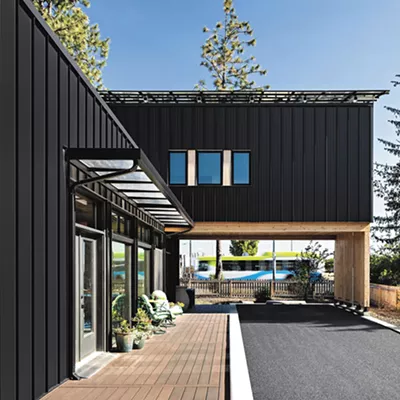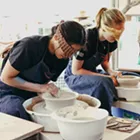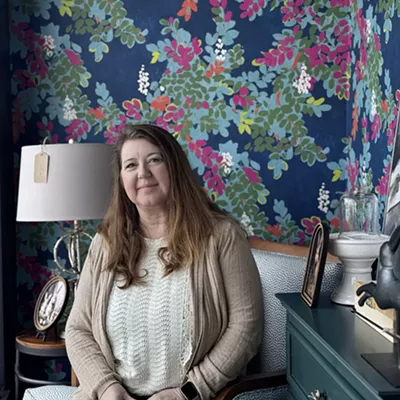After a six-year struggle to have a baby, Camilla Kane and her husband were emotionally, physically and financially exhausted. Kane had endured one early infant death, two early miscarriages and four failed attempts at in vitro fertilization. Her doctor suggested the last resort would be using a donor egg to conceive. Kane says she knew the decision was logical, and she and her husband decided to go ahead with the donor egg program. Still she wasn’t prepared for the emotional roller coaster it involved.
“When I got the letter from the clinic, I was embarrassed,” she says. “I thought, ‘I hope no one finds out I can’t make a baby with my eggs.’ Fifty percent of pregnancies in the U.S. are unplanned. Why can’t we do this thing that is so natural?”
Kane was also struck by the differences between conceiving using a donor egg versus conceiving with donor sperm. Sperm banks provide registries of donors, who are generally paid $50 to $100 for their contribution. For about $250, the genetic package can be purchased and shipped right to your home for a do-it-yourself insemination.
Of course, egg retrieval requires a much more complex regimen linking the donor’s and the recipient’s cycles, retrieving the eggs, completing in vitro fertilization and implanting the eggs. The cost to the couple trying to have a baby that way runs upward of $20,000. And the egg donor, who is generally compensated about $3,500, must undergo about two weeks of hormone therapy and a retrieval procedure that takes about 20 minutes under light sedation.
In Seattle, clinics have online databases of willing, prescreened donors. Prospective parents can search based on the donor’s maternal and paternal lineage, eye color, hair color, weight and height.
In Spokane, the story is a little different. Kane says she was told if she chose to participate in the anonymous donor program she would be given one potential donor, with no choice over the donor’s characteristics. “There are just not enough donors,” she says. “Hopefully, they have one donor for every recipient. The clinic matches you with somebody. If there are six people who want eggs, the recipient gets a profile, take it or leave it.”
The Right Donor
Leaving it meant waiting two more months for the next go-round, when she might or might not find a doctor that felt more suitable. Kane decided to try to find a donor on her own. She first asked her sister and was turned down.
Then Kane asked friends to be on the lookout for someone they liked who might be willing to donate. In the end, she found Belinda Moses, a friend of a friend. “I really see it as like donating a kidney or something. It is only one component of what is necessary to sustain life,” says Moses.
That wasn’t how her friends saw it. When Moses told them she was considering being an egg donor, she was stunned at the response. “It was alarming to me that everybody had the opinion that it would be like giving away one of their children. They thought it was great for the people receiving it, but some thought it was selling their eggs, some thought it was like selling their children, or the same as a man who has countless one night stands and doesn’t know about any of those children.”
But Moses, who has one stepchild and two biological children, went through the process anyway. Because she was finished having children, she wasn’t concerned about the possible risk to future fertility from being an egg donor. The risks come from the rare, but real, potential for an adverse reaction to the ovarian stimulating hormones as well as damage to the ovary or other internal organs during the retrieval process. The time commitment, potential risk to future fertility and the emotional maturity Moses says the process requires, cause her to question whether being an egg donor is a good idea for young women who haven’t already had their families.
As for the process, Moses says it required considerable juggling of her own childcare responsibilities, and the daily injections of hormones left her with a bruised abdomen. There was some inconvenience involved in traveling to the clinic for frequent ultrasound scans of the developing egg follicles. On the day of the retrieval, Moses had some apprehension. “I think I might know what the guy feels like when you’re trying to get her pregnant!” she laughs. “I felt pressure, but it was nothing I had control over. It was either going to work or it wasn’t.”
About the Money
After the procedure Moses was happy to learn she'd produced 17 eggs. She did experience some discomfort. "The day of the retrieval I was sore, it was hard to change diapers, get dinner," Moses says. "You just have to do it anyway. But it is something I'd do again. I'd do it again today."
Both Kane and Moses wonder why there are so few women in the Inland Northwest who express interest in being egg donors. “There’s this feeling we’re taking advantage of these young ladies, that we’re not sharing what it really means and we’re manipulating them into donating their eggs,” Kane observes. “But no one is making money off them. The money comes right from the recipient.”
In fact, Kane says the money may be part of the problem. One woman who contacted Kane in response to her ad on Craigslist so disliked the notion that she would be compensated for her eggs that she refused to work with the local clinic’s donor program. “She wanted it to be a gift. She wanted to help somebody who was having trouble having kids.”
Moses adds one friend who initially did not approve of her decision to become an egg donor was more accepting after she found out Moses was not accepting money. “That changed her view. That seemed to make a difference for her, it was more an act of love, an act of compassion.”
That leads Kane to wonder, “Are there people out there who would be willing to donate, if they saw more of the picture? If they felt it was entirely altruistic?” She continues, “I would love it if people in Spokane could have a choice of donors, even if it were just two — they could decide who matches me best.”
Love at First Sight
For Kane, as she contemplates her swelling belly about six months into her pregnancy, the experience has been an emotional one. "I will never have my genetic child, not that that's the end of the world," you learn as you go along it's not a mini-me," she says. "But I have recognized that it is an adjustment, you can't shortcut grief."
Moses isn't worried that because of her biological contribution she'll feel an emotional attachment to the baby. "I saw the ultrasound and that is their baby."
As for her feelings about being a doctor, "I really want to raise awareness that it is something beautiful and it is not giving your children away. In this day, when there are so many mixed families, if you raise stepchildren or grandma can raise your kids, it makes it easier for people to accept the idea of egg donation.
When Kane and her husband went for an ultrasound evaluation, she debated about inviting Moses. “I was a little nervous. I’m worried I’ll feel threatened or something,” she says. “While we were watching, it was just thrilling. Afterwards, what surprised me the most was I just saw her and I gave her a big hug. All I cared was, my God, we’re going to have a baby. How wonderful that this individual was willing to go through all of this.”


















